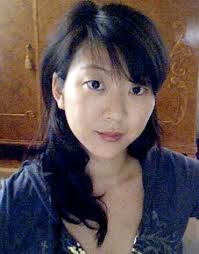Wednesday, November 3, 7pm – Poetry
Four Way Press Presents Tom Healy & Monica Youn
Tom Healy author of What the Right Hand Knows ($15.95 Four Way)
Tom Healy lives in New York and Miami. His poems and essays have appeared in BOMB, The Paris Review, Salmagundi, Tin House, The Yale Review, and other journals. He studied at Harvard and Columbia.
“Laconic yet passionate and sparely personal, the poems in this first book set urbanity and unfolding tragedy in common words and slow-moving, short lines. A gallery owner since the 1990s and a significant figure in New York City’s art scene, Healy unsurprisingly sets some poems there; his real gifts emerge, though, in allegorical or remembered rural locales. In one poem “mother and son” take “a Sunday drive on Tuesday” through the land where they grew up, “their remembered selves waving,/ as farmers do.” The specter of chronic disease, likely HIV, looms over that and other verse (“Everyone is so involved/ keeping track of my pills”), while the shadow of time passing besets them all; readers who admire Mark Doty may find far more concise versions of Doty’s effects. Healy’s finest moments make him spare, elegiac and wry all at the same time: “What do we do when we hate our bodies?/ A good coat helps.” So often interested in bodies, their pleasures, their troubles, Healy frequently decides that neither poetry nor anything else can console us when bodies don’t work: “sleep, vegetables, short walks” or even poems all seem to lead “to the logic of failure,// the panic that mind/ is not enough.”” Publisher’s Weekly
“The electric immediacy of these poems is an assault on silence, a gunshot fired across the bow of genteel decorous well-mannered lying and silence. At times, but seldom, they give us something sharp-edged but more comfortable (e.g., a portrait of Lauren Bacall choosing fruit). I love how everything here ‘haunts us with choice.’ This is a superb book.” Frank Bidart
“There is a certain sorcery in this book. The elegantly stoic observations of this poet’s sumptuously tattered life reproach any guess at the speaker’s age. Is it because he has (has always had?) so much conjuration in him that the wisdom seems so ageless, so innocent, in the welter of so much shameless acknowledgment? Well, when was the sibyl ever ashamed? It gives me enormous pleasure as an anything but ageless reader to introduce and to celebrate these vivid poems. The smiles they compel are taut and tight-lipped, but the language conjuring that pleasure is at once sumptuous and cost-effective, precise and loving.” Richard Howard, from the Introduction
“A wave of spontaneous greeting and implacable fluid motion breaks over these remarkable poems. Stirring up the ironic riptides of Stevie Smith, Vergilian Georgics and Catullus, the wave is revelation: ‘the necessities of rescue and surrender.’ If ‘Pindar said there’d be horses in heaven,’ Tom Healy imagines a flawed paradise here on earth—each poem an earthy lyrical miracle—‘our salt and work—/ the stubborn questions/ we endlessly/ give names to.’ What the Right Hand Knows is, like Giotto’s, a perfect circle, ‘the shape of astonishment.’ This is an utterly brilliant and uncommon first book, a voice like no other.” Carol Muske-Dukes
Monica Youn author of Ignatz ($15.95 Four Way)
Monica Youn, the author of Barter (Graywolf, 2003), lives in New York, where she is an attorney at the Brennan Center for Justice at NYU School of Law, focusing on election law issues. Her political commentary has appeared in Slate, Roll Call, and The Huffington Post. She has taught creative writing at Columbia University and Pratt Institute. For her work on Ignatz, she has been awarded the Witter Bynner Fellowship from the Library of Congress, and residencies from the MacDowell Colony, the Corporation of Yaddo, and the Rockefeller Foundation.
“George Herriman drew the comic strip Krazy Kat, which was published across America, between 1913 and 1944. It followed the antics of the titular cat, who is madly in love with Ignatz Mouse, who would rather attack Krazy with a brick than return the feeling. The strip serves as the inspiration and jumping off point for this second book by Youn (Barter), though intimate familiarity with the strip is hardly necessary to enjoy these poems. Unrequited desire is the theme. “Oh Ignatz won’t you play me/ like a filigree flute?” asks one of four poems titled “Untitled (Krazy’s Song).” Ignatz becomes an open-ended figure for the inaccessible beloved, a kind of muse that’s always out of reach. In wiry verse, prose poems, sharp, jagged stanzas, and even lines that mimic the movement of a tetherball, Youn traces the many incarnations of desire: “the way water is always rushing between a ferry// and its dock in that ever-present gap.” In the stunning “X as a Function of the Distance from Ignatz,” desire is measured in feet: “(he is forty feet/ away) the stiff wind/ palpably stripping// his scent from her hair.” Not only has Youn created a thrilling book of poems but also opened new avenues for ekphrastic poetry.” Publishers Weekly
“In Monica Youn’s stunningly imaginative series Ignatz, George Herriman’s comic-strip villainous mouse, Ignatz, is demoused and, with inexhaustible invention, transformed into an object of passion […] Youn dips what would otherwise be black comedy into the honey pot of untiring desire: ‘O pity us // Ignatz O come to us by moonlight / O arch your speckled body over the earth.’ […] Spare, choice, witty, daring, musical, itself never tiring, Youn’s style is more than equal to both the romanticism and the grimness.” Cal Bedient“Modernist, secret philosopher, ironic medium, dialectician, inventor of a terse exuberance, hypocrites’ steely antagonist […] Monica Youn is all those things in these astonishing, compact poems, whose spare lines and dense clusters unfold almost illimitably into panels and landscapes and transcontinental journeys. […] No poet of Youn’s generation has made more demands on herself—and none has done more in her art.” Stephen Burt

